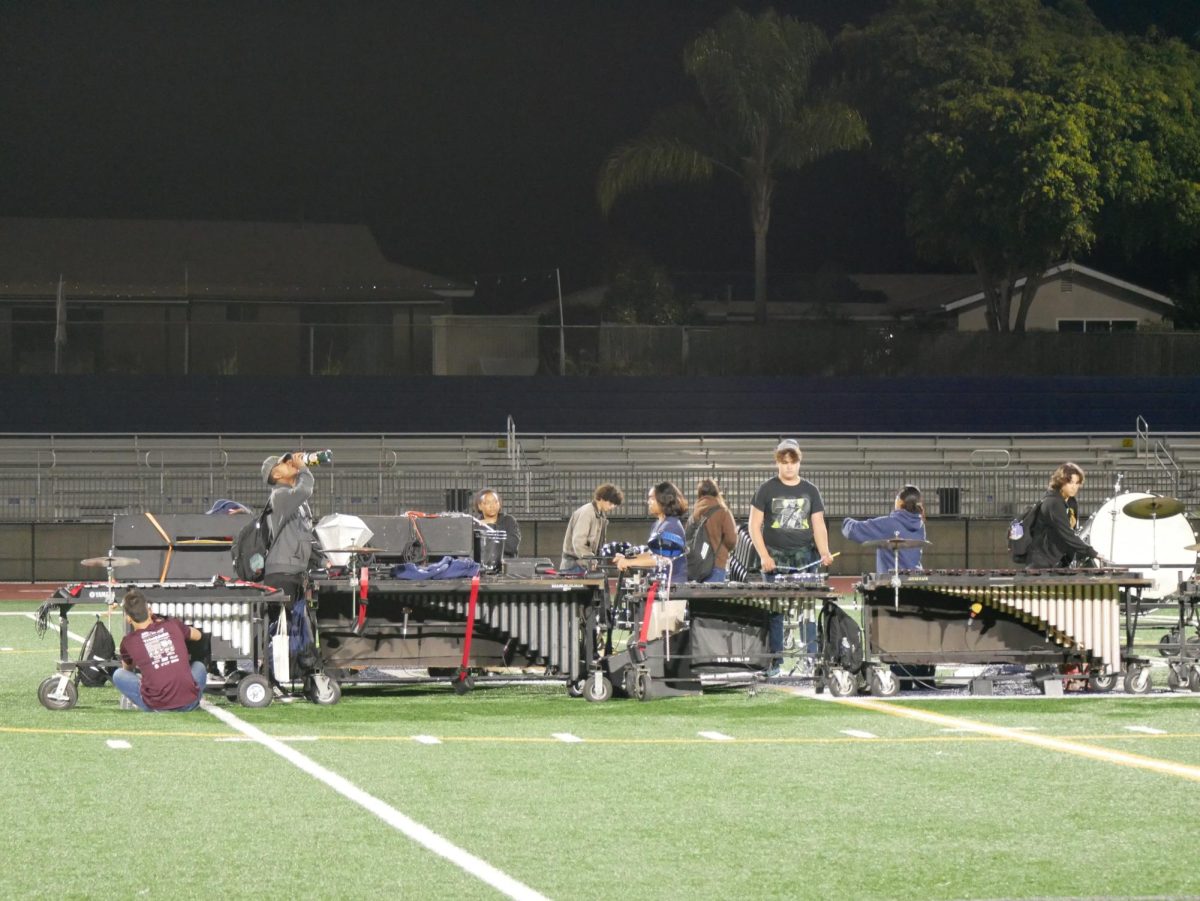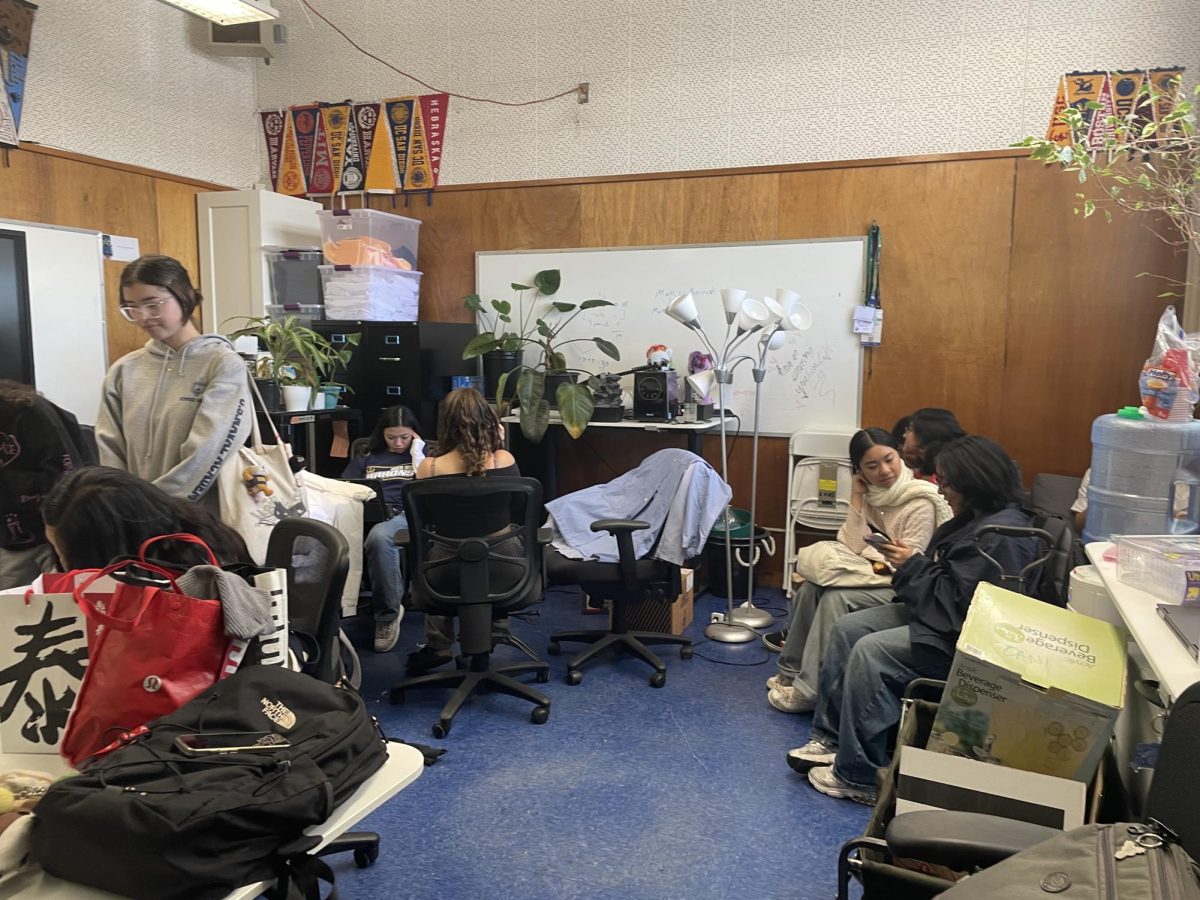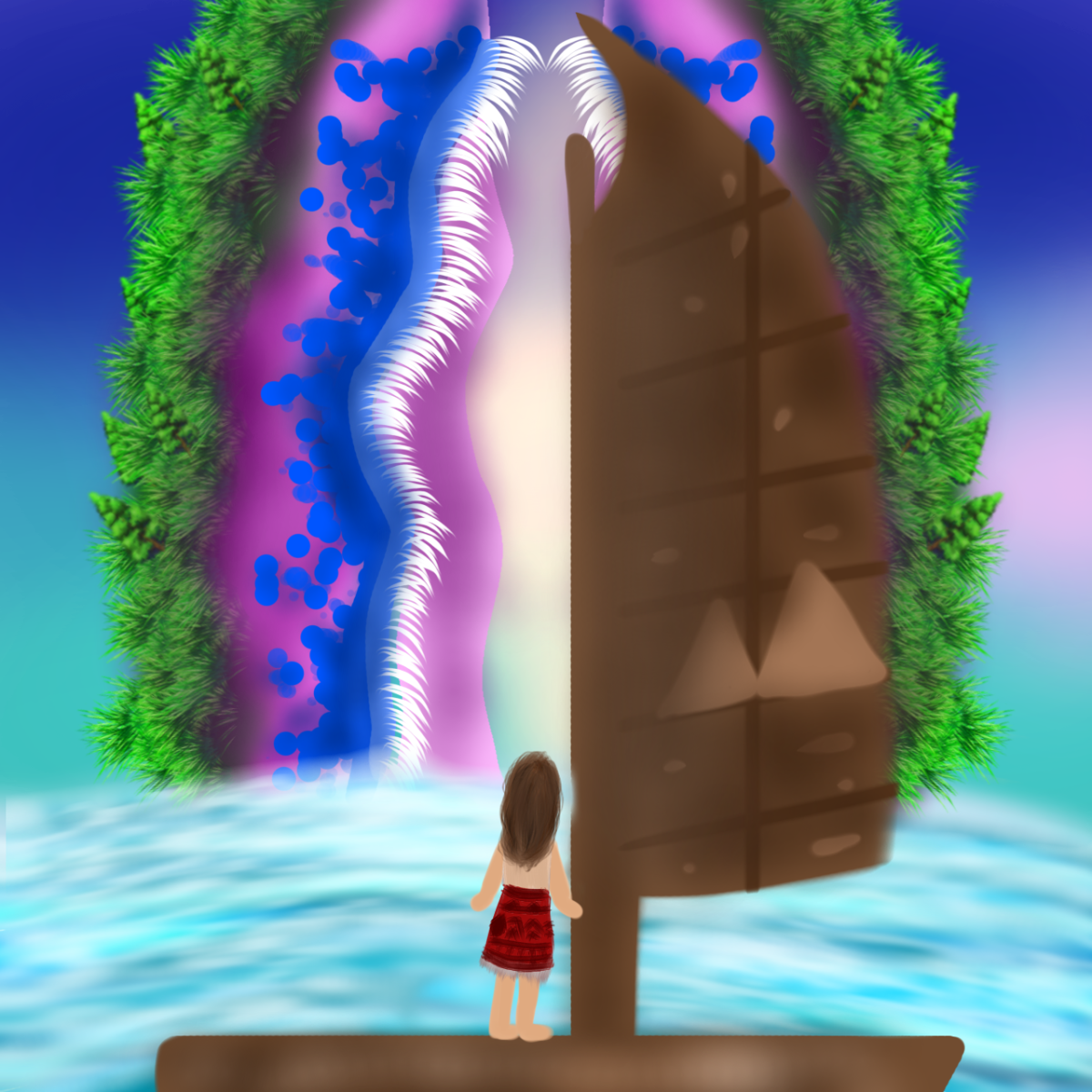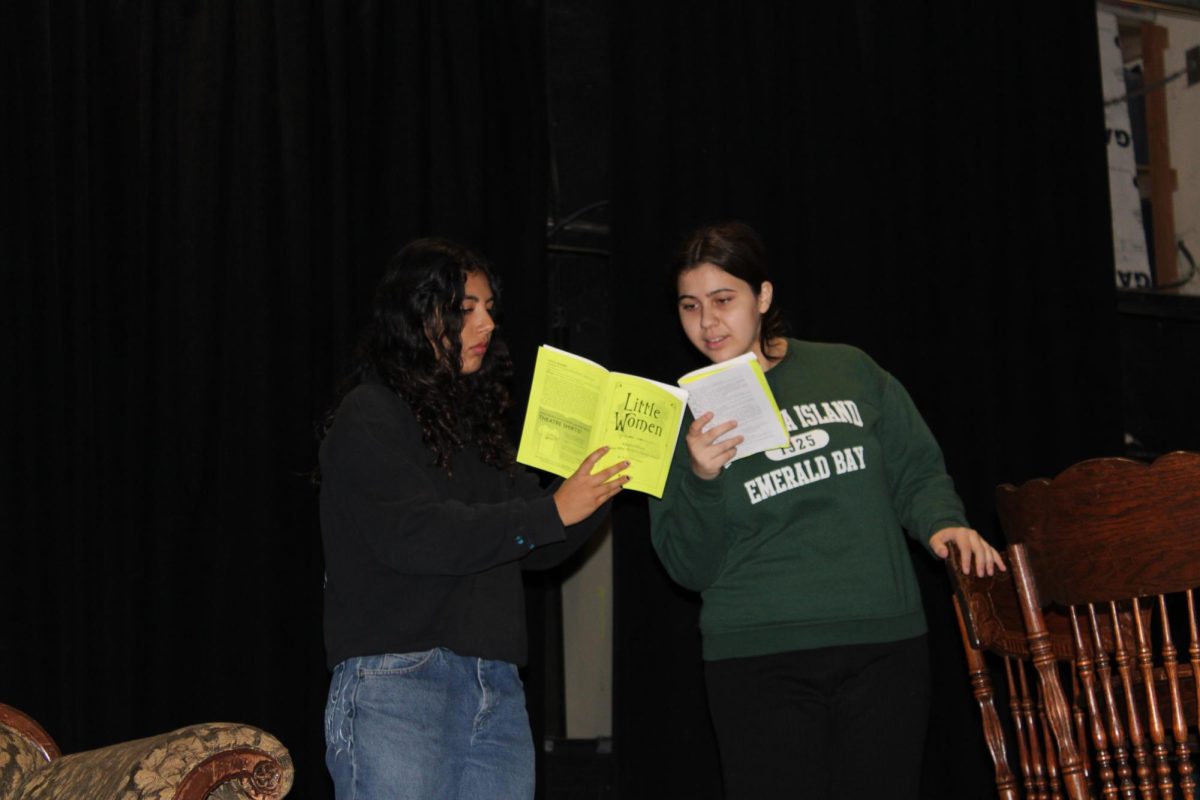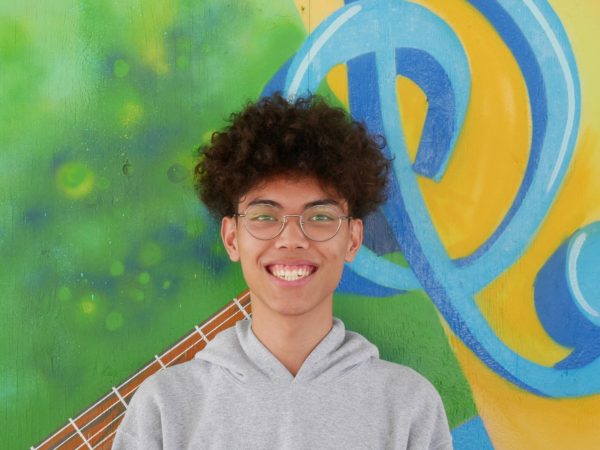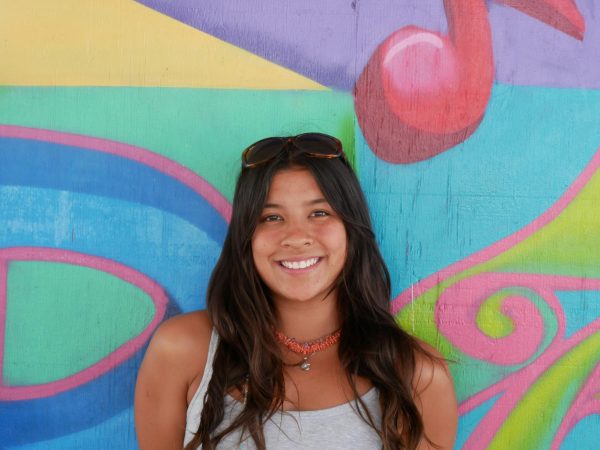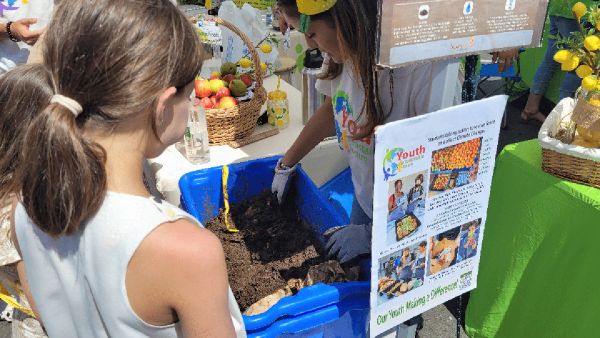
On Aug. 12, hundreds of people flocked to Third Avenue in Downtown Chula Vista to attend the annual Lemon Festival, a festival dedicated to the history of lemons in Chula Vista. Booths lined up on both sides of Third Avenue with vendors selling food and drinks, businesses selling their products, as well as other miscellaneous stands. Among these participants was Youth 4 A Sustainable Future (Y4SF)—an advocacy group for South Bay Sustainable Communities (SBSC).
SBSC is an outreach community that aims to build healthy and sustainable communities through education and activities that preserve the environment, founded by Tina Matthias in 2020. The group encourages community involvement and building sustainable communities through environmental conservation, neighborhood composting and sustainable urban farming.
“We advocate for the environment and the sustainability of food waste. This was a pandemic project of Tina Matthias, our founder,” Bonita Vista High (BVH) Y4SF member and senior Marvin Canton said. “We have a whole bunch of different events: we host hikes, compost classes and planting, and we hope we have field trips to places where most of the public can’t go like landfills, recycling centers and farms.”
Y4SF is a program under SBSC, commonly found in high schools such as BVH and its neighboring schools like Hilltop High School. The program’s goal is to inform youth and upcoming generations about environmental issues and teaches students how to incorporate sustainable practices into their everyday lives in order to make a difference in their communities. They have taken steps to promote activities such as zero waste, composting and food sorting stations to prevent waste from ending up where they shouldn’t.
“[The activities] teaches them how to turn food into compost so less of it goes to landfill,” Advance Placement (AP) and International Baccalaureate (IB) Environmental Science teacher, Biology teacher and BVH Y4SF advisor Jennifer Ekstein said.
Y4SF was one of many advocate groups at Lemon Festival that wanted to raise awareness for certain causes. The organization was present at the Lemon Festival to teach the visitors about sustainability, as well as promoting the various activities the group set up to educate people or get involved in their community.
“We have an educational booth that has many activities; there’s a food sorting station for kids, and sign ups for programs through South Bay Sustainable Communities so you can get involved in hikes and beautification,” Ekstein said. “On the other side, we’re talking about composting and worms, so it educates the community about how to be more sustainable.”
One reason why students decide to join Y4SF and get themselves involved in their community is because they want to make a change. The passion for making a difference resides within many of these students, especially in regards to climate change.
“I joined a couple years ago because I’ve always been very interested in fighting against climate change. I’ve also been interested in having my own compost bins at home and I’ve always been very connected to nature and everything that has to do with sustainability,” High Tech High Y4SF staff member and senior Brooke Compton said.
One crucial activity that Y4SF was educating individuals on at their booth was composting. Compton educated children and curious passersby on sustainability and the significance of composting using vermicomposting—a form of composting that utilizes worms and their feces for fertilizer.
“It’s a regular compost bin except there’s worms inside of it. When the worms poop, it’s [called] castings. That’s the main draw to these types of composting bins. Their castings are like gold to the gardens and a lot of gardeners like these types of composting bins because they give them a natural fertilizer,” Compton said.
To further promote sustainability, Y4SF also had student volunteers set up near trash cans and waste bins to help attendees organize their waste during the event. This ensures that trash is being organized accordingly.
“When people throw away their trash, we help them organize where it should go. If you have plastic, [those] go into [the] trash. If you have food and paper, that goes into food waste or green waste,” Canton said. “And if you have recyclables, that goes into recycling. We try to prevent the crossing of different food waste [in places] where they shouldn’t be.”
As a teacher in the environmental science field, Ekstein knows the importance of environmental sustainability and hopes that her students and the younger generation share this sentiment. Y4SF participating at the Lemon Festival provides Ekstein and the student volunteers an opportunity to spread their knowledge of sustainable practices that can be achieved on a day to day basis.
“Teaching the curriculum is one thing, but actually being an active part of what you teach, promoting it and demonstrating these sustainable actions is a bigger goal than just getting students to understand the curriculum. I want them to be an advocate and I want them to have tools to be sustainable,” Ekstein said.

